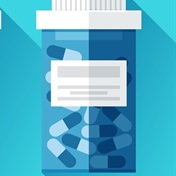President Barack Obama's administration unveiled a plan to fight what it calls a prescription drug abuse epidemic.
Between 2002 and 2009, the number of Americans aged 12 and older abusing pain relievers increased by 20%, according to the Substance Abuse and Mental Health Services Administration.
"Unintentional drug overdose is a growing epidemic in the US and is now the leading cause of injury death in 17 states," Centres for Disease Control and Prevention Director Dr Thomas Frieden was quoted as saying in a statement from the White House's Office of National Drug Control Policy.
The Obama administration's plan entails a government-wide public health approach to reduce drug abuse and asks for an additional $123 million (about R836 million) for drug prevention and an additional $99 million (about R673 million) for treatment programs in the 2012 fiscal year, according to the statement.
Saving lives
"Today we are making an unprecedented commitment to combat the growing problem of prescription drug abuse," the statement quoted Vice President Joe Biden as saying.
"This plan will save lives, and it will substantially lessen the burden this epidemic takes on our families, communities, and workforce," he said.
The plan focuses on requiring drug makers to educate the medical community about the safe use of prescription drugs, beefing up prescription drug monitoring programs, recommending responsible disposal methods for unused medications, and reducing the prevalence of pill mills and doctor shopping through enforcement efforts.
The plan aims for a 15% reduction over 5 years in non-medical use of prescription-type psychotherapeutic drugs among people 12 and older, and a similar decrease in the number of unintentional overdose deaths.
An outside expert on drug problems said that two key demographic elements were among his and his group's concerns in fighting prescription drug abuse.
Seeking harder drugs
John Challis, vice president of treatment for Daytop Village, a family-oriented drug treatment facility in New York City, said one was the rising number of young people who are taking opiates and may seek different, harder drugs after their supply of prescription drugs dries up, he said.
Another, Chalis said, is that the aging members of the baby boomer generation increasingly are becoming dependent on hard pain relievers.
Clear data on prescription drug abuse is difficult to provide, he said, because by the time many people get treatment, their prescription drug problem is compounded with other substance abuse problems.
(Reuters Health, Wendell Marsh, April 2011)
Read more:




 Publications
Publications
 Partners
Partners










